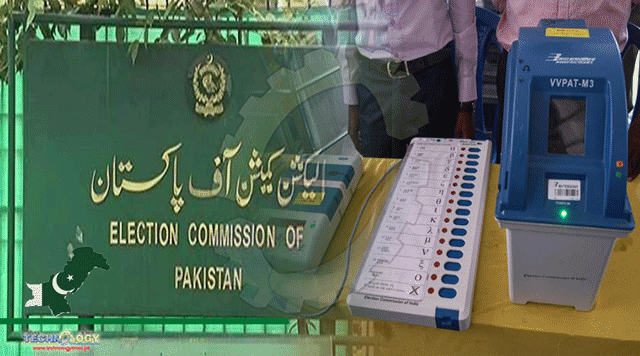Chief Election ComMissioner (CEC) Sikandar Sultan Raja On Thursday Underscored Need For Using Trusted And Tested Technology In Elections.

https://technologytimes.pk/2021/05/18/pakistan-puts-indigenous-electronic-voting-machine-on-display/In what appears to be a cautious reaction to the recently promulgated ordinance allowing overseas Pakistanis to vote and introduction of electronic voting machines (EVMs), Chief Election ComMissioner (CEC) Sikandar Sultan Raja On Thursday Underscored The Need For Using Trusted And Tested Technology In Elections.
Chairing a meeting on grant of right to vote to overseas Pakistanis and introduction of EVMs in polls, he said the Election Commission of Pakistan (ECP) was not opposed to the use of technology but it must be secure. He said there was a need to be extremely careful to ensure transparency, fairness and impartiality of elections. The secretary, members and senior officers of the ECP attended the meeting. During the meeting, the commission decided to write to the information technology ministry for sharing the third party audit report on internet voting with it.
ECP calls for development of electronic voting machine by end of current month. The ECP also desired development of an EVM by the Ministry of Science and Technology by May 31 and that a demo of the EVM should be given to the commission. The ECP had carried out pilot projects to give the right to vote to overseas Pakistanis and their reports were submitted to the federal government in December 2018. In this regard, the government asked the Ministry of Information Technology to conduct an audit and the ministry assigned this task to a Spanish firm, Minsait. The last date for submission of the audit report is May 31.
The commission has sought this report so that further work could be done on it. A committee has been constituted under the chairmanship of the ECP secretary, which includes all officials concerned who will collect all the work done so far in this regard and will give a briefing in the next meeting of the commission with their recommendations. The ECP welcomed the reports suggesting that the government had decided to debate the commission’s reports on internet voting for overseas Pakistanis and EVMs in the cabinet and parliament.
The commission desired that the outcome of the debate should be communicated to it so that it could be used. The Pakistan Tehreek-i-Insaf (PTI) had been pursuing these two issues since the 2013 general elections. The PTI members had in the parliamentary committee on electoral reforms, headed by former finance minister Ishaq Dar, raised the issues on a number of occasions and it was on the PTI’s insistence that the provisions of Sections 94(1) and 103 were included in the Elections Act 2017.
President Dr Arif Alvi was also a member of the committee at that time and was in the forefront in convincing the ECP for the use of EVM and grant of the right to vote to overseas Pakistanis. The ECP had finally conducted a mock exercise for voting by overseas Pakistanis in four countries in 2015. Later, the ECP officials informed the committee that the mock exercise carried out in Saudi Arabia, the UK, the US and the UAE had failed for a number of technical and legal reasons.
During the mock exercise, the ECP faced difficulties in handling only 67 postal ballots whereas 1.8 million overseas Pakistanis were living in Saudi Arabia alone at that time. Another problem which the ECP had pointed out to the committee was that it had sent ballot papers to overseas Pakistanis through email, whereas a significant number of Pakistanis working as labourers in foreign countries had no access to emails.
This news was originally published at Dawn.